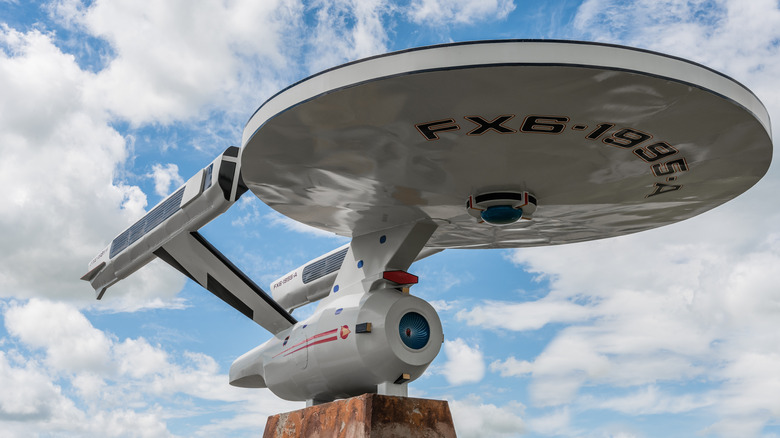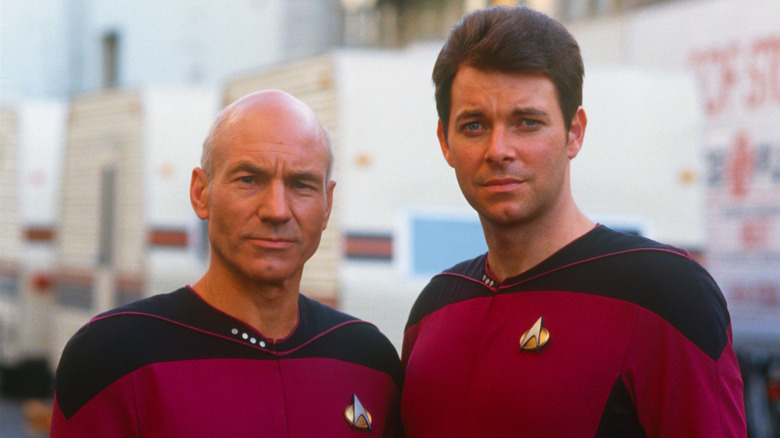How Star Trek's Warp Drive Engine Could Be Real One Day
When TV shows like "Star Trek" air, it makes people think about space travel. Especially when the starships utilize their warp drives, which allows them to flit from star to star like fireflies, oblivious to the actual vast distances between them.
At the moment, humanity is far from being able to reach those levels. It would take thousands of years to reach our nearest neighbor star at our current highest speeds. Even leaving our solar system would take multiple generations. If we could reach the speed of light, it would take four years to reach that star, according to EarthSky. To be able to do something like "Star Trek," that would require being able to bend space-time.
Fortunately, there are great minds at work on this. Per Scientific American, one of them is Erik Lentz, who came up with a way that the warp drive could feasibly work with positive energy as opposed to needing negative energy to get it to move. He is no armchair scholar, owning a Ph.D. — he wrote his thesis on dark matter. Lentz came to this conclusion when he was on lockdown in Germany, thanks to COVID-19.
One day we may travel space like Captain Picard
Via Scientific American, the image he came up with was like a ship with a bubble around it that was able to move around space-time. Earlier iterations stalled at the negative energy consideration, but he figured that it could work on positive energy.
As great as this breakthrough seems, there still are a lot of things for the scientists and engineers to puzzle out before this becomes close to being done on a practical level. Opinions still vary about whether positive energy will be enough to propel the warp drive, or will negative energy still be needed, despite what Lentz hypothesized.
While this is an exciting thing to add to the astrophysical literature, there is still a winding road ahead. One thing that is certain, though. If people are able to do this, they will leave and come back to an Earth that is very different from when they left due to the differences in the passage of time, per SyFy.
There seems to be a ticking clock in the background when it comes to puzzling this out. The specter of climate change is what has many people worried. And if things get bad quickly, then there is the possibility that this will always remain in the realm of science fiction. That would be a great disappointment to the denizens of the "Star Trek" universe — to have exploration halted well before it ever began. But it never hurts to keep our eyes to the skies, anyway.

